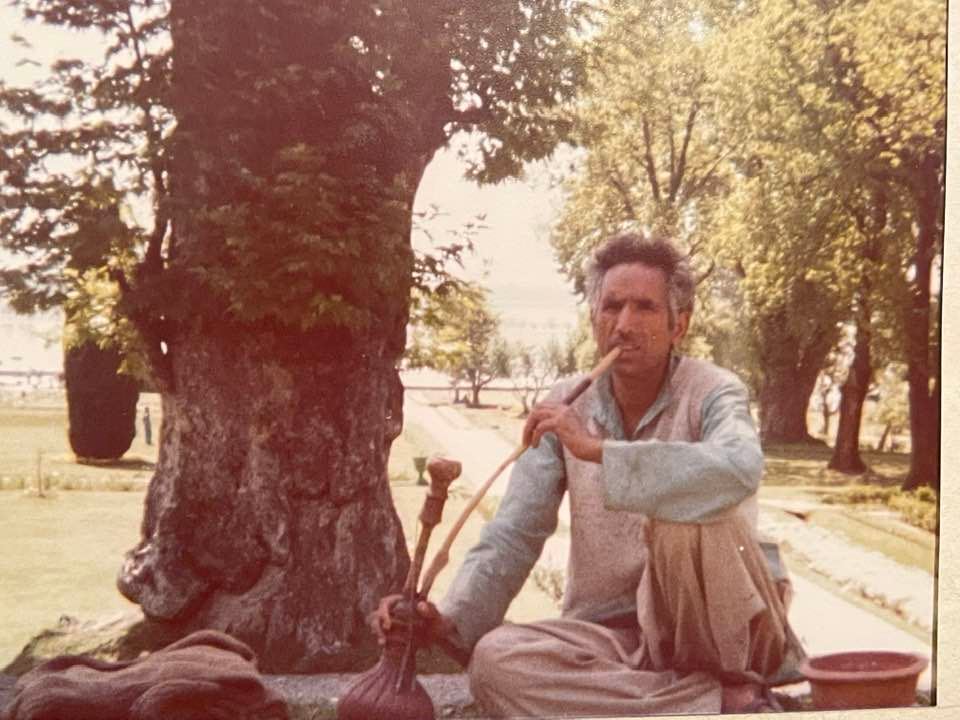FEBRUARY 26, 2022 – “My friends aboard the houseboat were exceptional people,” I wrote home. “We dined as a group and […] enjoyed long evenings of conversation and charas smoking. ‘Charas,’” I explained, “is the Hindu word for . . . hashish.
“Now that you’ve recovered, Mother,” I added, “you may note that hashish is to Kashmiris what a good table wine is to a Westerner. Even John, the BBC producer, joined unabashedly, remarking that he’d ‘never dreamed of smoking anywhere else, but that the Indian experience wouldn’t be complete without a few puffs on the ‘hubble-bubble’ or ‘hookah.’”
One evening, we encountered a geologic feature of Srinagar. “Last week,” I wrote, “I experienced my first earthquake. While my friends and I were eating supper, the houseboat began to rock, first gently, then violently. Lamps tipped over and the furniture shifted. For a moment the flimsy structure itself seemed ready to collapse. The ‘boat ride’ lasted forty-five seconds or so, and after sorting out the tables and chairs, we returned to our rice and dal.”
Politically speaking, my sojourn in Kashmir was during a peaceful period. Regular, flyovers by military aircraft, however, were constant reminders of the tension between India and Pakistan. I remember the day when I was hiking the steep heights over Srinagar. Out of nowhere I heard—then barely saw—a fighter jet fly through a narrow valley then turn on its toe and screech up the slope toward me. Only on Minnesota ice have I slipped so fast onto my butt.
For the most part, however, people went about their lives without fear. Politics never came up until one day when a resident of Srinagar called out to me, “Where from you?”
He was a hospital worker, knew passable English, and asked what I thought of Kashmir.
In my letter home, I described the conversation that unfolded.
“Soon his comrades surrounded us [. . .] They pressed closer to hear the conversation between their friend and me.
“Here I must note that neither Kashmiris nor Indians understand the concept of ‘elbow room.’ They push so close at times that one begins to worry seriously about suffocation. [Bear in mind, this was the reaction of a Minnesotan of Swedish heritage.]
Soon four other Kashmiris introduced themselves and carried forth the conversation. They fired many interesting questions, such as ‘What should American policy be in response to the Soviet occupation of Afghanistan?’ ‘Did I think an expanding U.S military presence in the Indian Ocean poses a threat to world peace?’ and ‘Did I agree with U.S. policy to ban export of uranium to India?’
“After a half-hour discussion, one of the group introduced me to a young physician, who, in turn, invited me to join the crowd for lunch. The meal consisted of heaps of rice, mutton curry, and Kashmiri-style vegetables. [. . .] I was ever grateful for the opportunity to mix with these people and to be the recipient of their warm generosity.”
In the context of that encounter with medical workers, my letter made no mention of the girl with the burned hand.
(Remember to subscribe to this blog and receive notifications of new posts by email.)
© 2022 by Eric Nilsson
